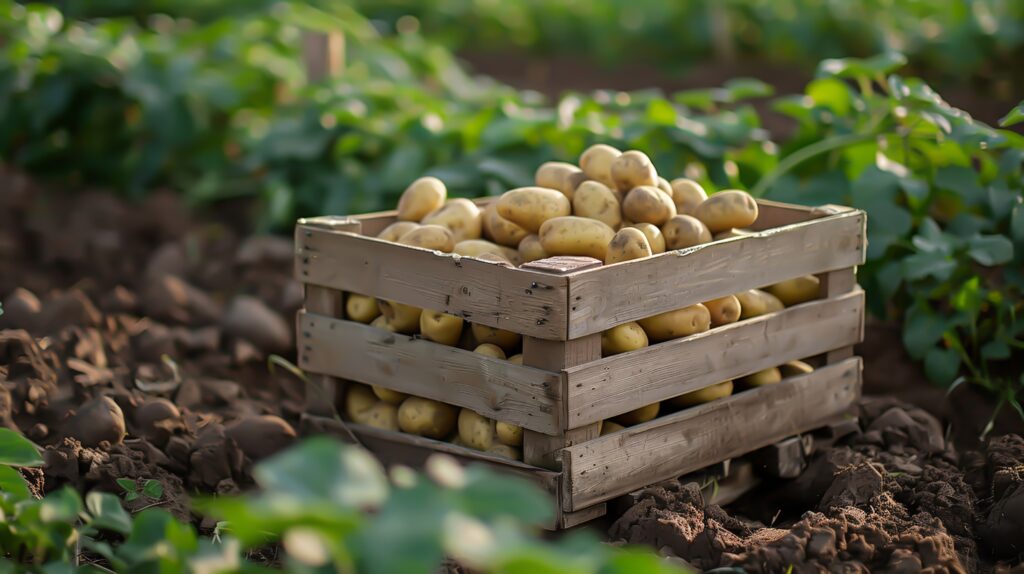
The Comprehensive Guide to Potato Import in India
Introduction
India, one of the largest producers and consumers of potatoes globally, has a significant demand for this versatile vegetable. While India grows substantial quantities of potatoes domestically, there are times when imports become essential to meet the market demand. Potato imports in India have grown over the years due to various factors such as fluctuating supply, quality concerns, and changing consumer preferences. In this comprehensive guide, we will dive deep into the current trends, reasons for importing potatoes, regulations governing the trade, and the benefits and challenges of importing potatoes into India.
1. Overview of Potato Imports in India
India’s agricultural economy is robust, but certain crops, including potatoes, sometimes require supplementation from foreign markets to meet consumer demand.
Key Statistics:
- India ranks among the top potato consumers in the world, with an annual demand that far exceeds domestic production during certain seasons.
- Countries like the Netherlands, China, and Bangladesh are significant exporters of potatoes to India.
- India imported over 15,000 tons of potatoes in 2023, highlighting the growing reliance on imports.
Trends in Potato Imports:
- Seasonal Shortage: During off-peak seasons, Indian farmers struggle to meet the country’s potato demand. Imports help fill this gap.
- Export of Varieties: Imported potatoes often cater to niche markets that require specific varieties not commonly grown in India, such as Russet or Red potatoes.
2. Reasons for Importing Potatoes to India
There are several compelling reasons why importing potatoes is crucial for India’s economy:
- Seasonal Demand: Potatoes are a staple in Indian households, and the demand stays constant throughout the year. However, India’s domestic production is seasonal, leading to periods where the supply falls short. Imports help bridge the gap during these times, ensuring stable pricing and availability in the market.
- Quality Differences: Imported potatoes often meet higher quality standards due to advanced farming techniques, sorting, and packaging employed in exporting countries. Consumers, especially in urban markets, may prefer these potatoes for their consistent size, shape, and taste.
- Competitive Pricing: Importing potatoes can also help stabilize or reduce prices during domestic shortages, making them more affordable for Indian consumers. With the globalized trade environment, sometimes importing potatoes is cheaper than growing them domestically during certain periods of the year.
- Supporting Processed Food Industry: India’s booming processed food industry, which includes potato chips, fries, and other snacks, often requires specific types of potatoes with high starch content. Many Indian farmers do not cultivate such varieties, which makes import essential for meeting the industrial demand.
3. Regulations and Guidelines for Importing Potatoes
Importing potatoes into India involves several regulations and compliance steps to ensure that the potatoes meet safety and quality standards. The Indian government, through agencies such as the Food Safety and Standards Authority of India (FSSAI) and the Agricultural and Processed Food Products Export Development Authority (APEDA), has laid down clear guidelines for potato imports.
Key Regulations:
- Import Duties and Tariffs: India imposes import duties on potatoes, which vary depending on the trade agreements with the exporting countries. Tariffs can fluctuate, especially in times of domestic surplus or scarcity, as the government attempts to protect local farmers while meeting consumer needs.
- Phytosanitary Requirements: Imported potatoes must meet phytosanitary guidelines that ensure they are free from pests and diseases. This is to protect Indian crops from foreign pests that could potentially damage domestic agricultural yields.
- Documentation Required: Importers must submit a variety of documents including a Phytosanitary Certificate, Bill of Lading, and certificates proving that the potatoes meet the necessary quality standards.
- Customs Inspections: Upon arrival, imported potatoes are subject to inspections by Indian customs and food safety officials to ensure they comply with all safety, health, and quality regulations.
4. Benefits of Importing Potatoes
Importing potatoes brings several advantages to both consumers and businesses in India:
- Supply Stability: Importing potatoes helps maintain a steady supply in the market even when domestic production faces shortfalls. This ensures that prices remain stable, preventing inflation in potato prices, which could affect consumers’ purchasing power.
- Access to Different Varieties: Imported potatoes can diversify the varieties available in Indian markets. For example, while Indian farmers predominantly grow white and yellow potatoes, importing opens the door to more exotic varieties like Purple, Fingerling, and Red Potatoes.
- Supporting Local Businesses: The import of potatoes supports local food processing businesses by providing them with high-quality raw materials that might not be available locally. This boosts the value chain in the food industry, especially in sectors like chips, fries, and potato-based snacks.
- Fulfilling Niche Market Demand: Certain restaurants and premium food outlets may demand specific types of potatoes for gourmet dishes. Importing potatoes that meet these niche demands enhances consumer choice in urban markets.
5. Challenges in Potato Import
Despite the benefits, there are several challenges in importing potatoes into India:
- Trade Barriers: Tariffs and trade barriers can sometimes make importing potatoes costly. High import duties may deter businesses from opting for imports, especially when domestic production is sufficient to meet demand.
- Transportation and Storage: Potatoes are perishable commodities and must be stored under specific conditions to maintain their freshness. The costs associated with cold storage and transportation, especially over long distances, can add to the price of imported potatoes.
- Quality Control: Ensuring the imported potatoes meet Indian standards is another challenge. Poor-quality imports can lead to consumer dissatisfaction, and stringent quality checks can delay the entry of products into the market.
- Competition with Domestic Farmers: Importing potatoes, especially during the harvest season, can hurt local farmers by driving down the prices of domestic produce. The government has to balance the interests of consumers and producers, which can sometimes create tension between importers and local agricultural bodies.
6. Future Trends in Potato Import
The future of potato imports in India looks promising due to evolving consumer preferences and increasing demand for processed potato products.
- Advances in Supply Chain Management: As technology continues to improve, better logistics and cold chain infrastructure can reduce the cost and time associated with importing potatoes, making the process more efficient and cost-effective.
- Sustainability Concerns: More consumers are becoming conscious of the environmental impact of their food choices. This could influence import policies and consumer preferences, as sustainability in agricultural practices and trade will play an increasing role in the potato import industry.
- Rise in Processed Potato Products: With the growing popularity of western fast food chains and snacks in India, there will be a rising demand for high-starch, imported potato varieties specifically suited for fries, chips, and other processed foods.
- Market Forecasts: According to trade reports, potato imports in India are expected to grow in the coming years, especially as consumers demand higher-quality and diverse potato varieties. The overall trend points toward continued growth in imports as urbanization, population growth, and changes in dietary habits boost demand for both raw and processed potatoes.
Conclusion
The potato import industry in India is an essential aspect of ensuring a stable, quality supply of one of the country’s staple foods. As both consumer demand and industrial needs grow, importing potatoes will continue to play a crucial role in the economy. However, challenges such as trade barriers, transportation costs, and competition with domestic farmers need to be managed effectively to ensure that both importers and local producers benefit from this dynamic market.
